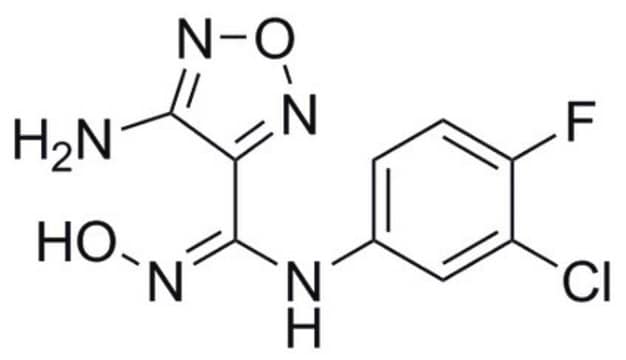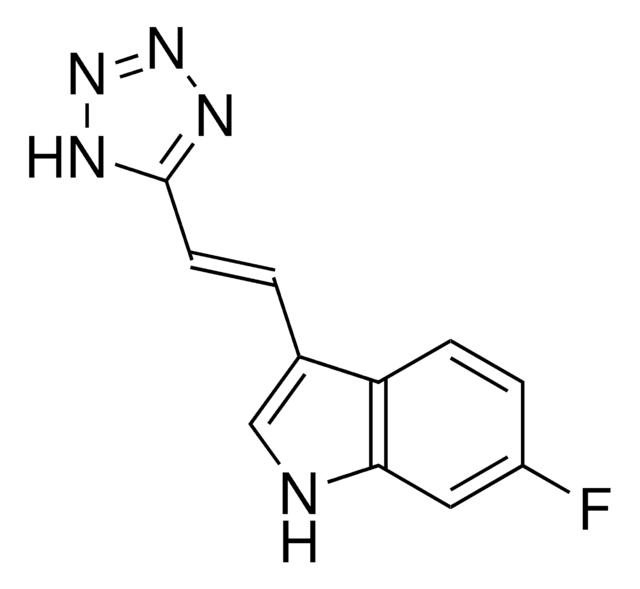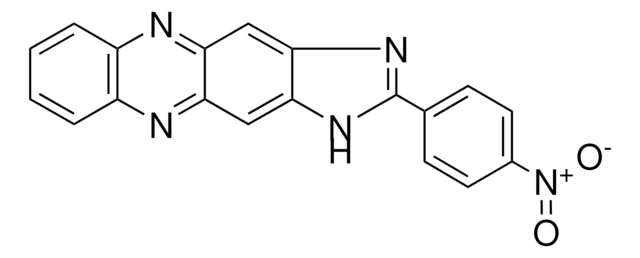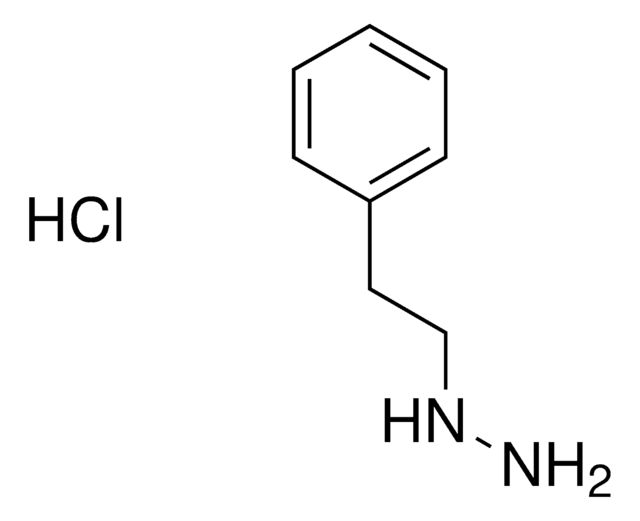SML0287
680C91
≥98% (HPLC)
Synonim(y):
6-Fluoro-3-[(1E)-2-(3-pyridinyl)ethenyl)-1H-indole
About This Item
Polecane produkty
Poziom jakości
Próba
≥98% (HPLC)
Postać
powder
kolor
white to beige
rozpuszczalność
DMSO: ≥10 mg/mL
temp. przechowywania
2-8°C
ciąg SMILES
Fc1ccc2c(\C=C\c3cccnc3)c[nH]c2c1
InChI
1S/C15H11FN2/c16-13-5-6-14-12(10-18-15(14)8-13)4-3-11-2-1-7-17-9-11/h1-10,18H/b4-3+
Klucz InChI
YBSDQTBCNYWBMX-ONEGZZNKSA-N
Zastosowanie
- as a tryptophan 2,3 dioxygenase (TDO) inhibitor to study its effects on the pigmentation in Doryteuthis pealeii embryos
- as a TDO inhibitor to study its effects on esophageal squamous cell carcinoma in xenograft tumor assay
- as a tryptophan 2,3 dioxygenase 2 (TDO2) inhibitor to study its effects on toxic fragment formation in human embryonic kidney cells
Działania biochem./fizjol.
Hasło ostrzegawcze
Danger
Zwroty wskazujące rodzaj zagrożenia
Zwroty wskazujące środki ostrożności
Klasyfikacja zagrożeń
Eye Dam. 1
Kod klasy składowania
11 - Combustible Solids
Klasa zagrożenia wodnego (WGK)
WGK 3
Temperatura zapłonu (°F)
Not applicable
Temperatura zapłonu (°C)
Not applicable
Certyfikaty analizy (CoA)
Poszukaj Certyfikaty analizy (CoA), wpisując numer partii/serii produktów. Numery serii i partii można znaleźć na etykiecie produktu po słowach „seria” lub „partia”.
Masz już ten produkt?
Dokumenty związane z niedawno zakupionymi produktami zostały zamieszczone w Bibliotece dokumentów.
Nasz zespół naukowców ma doświadczenie we wszystkich obszarach badań, w tym w naukach przyrodniczych, materiałoznawstwie, syntezie chemicznej, chromatografii, analityce i wielu innych dziedzinach.
Skontaktuj się z zespołem ds. pomocy technicznej






![2,4-Dichlorothieno[3,2-d]pyrimidine AldrichCPR](/deepweb/assets/sigmaaldrich/product/structures/408/704/0886c958-6ca7-40e3-91c0-ecc81fbfe483/640/0886c958-6ca7-40e3-91c0-ecc81fbfe483.png)


